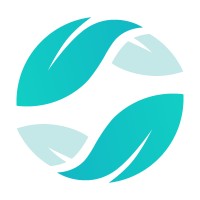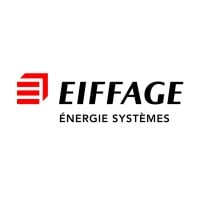
Recycle Coach
Recycle Coach is recycling simplified. We save people time and energy with intuitive digital tools that make recycling easy. Our goal is to be in every city, on every device, empowering communities to waste less and recycle more.



Recycle Coach is recycling simplified. We save people time and energy with intuitive digital tools that make recycling easy. Our goal is to be in every city, on every device, empowering communities to waste less and recycle more.

Rejoindre Eiffage, c’est rejoindre une entreprise animée d’un esprit de famille unique. Nous recherchons des talents qui valorisent l’esprit d’équipe et l’entraide. Des talents qui souhaitent découvrir, progresser, innover dans un collectif engagé pour construire un avenir à taille humaine. Nous avons besoin de vos différences et de vos singularités car elles sont la richesse d’un Groupe qui donne sa chance à chacun. Rejoindre Eiffage, c’est rejoindre une grande entreprise qui a tous les atouts d’une petite ! __ Eiffage Énergie Systèmes est la marque des métiers de l’énergie du groupe Eiffage. Eiffage Énergie Systèmes conçoit, réalise, exploite et maintient des systèmes d'énergie. Experte en génies électrique, industriel, climatique et énergétique, Eiffage Énergie Systèmes propose des solutions innovantes portées par de nouvelles marques expertises: - Clemessy, la marque dédiée à l’industrie - Dorsalys, la marque dédiée aux infrastructures et réseaux - Expercité, la marque dédiée aux villes et collectivités - et Terceo, la marque dédiée aux bâtiments tertiaires. Eiffage Énergie Systèmes : - 5,9 Md€ de chiffre d’affaires - 1,8 Md€ de chiffre d’affaires en Europe (hors France) - 140 M€ de chiffre d’affaires au grand international - Plus de 33 000 collaborateurs Eiffage : CA : 21,8 milliards d’euros 78 200 salariés Présente dans plus de 50 pays, Eiffage Énergie Systèmes tisse une relation de proximité avec ses clients et offre ses expertises pointues afin de répondre au plus juste aux besoins énergétiques. Plus de 33 000 collaborateurs sont présents dans plus de 500 établissements sur tous les territoires, afin de mener à bien petits comme grands projets. Rejoindre Eiffage Énergie Systèmes c’est prendre part à des projets d’envergure et concevoir des solutions énergétiques respectueuses des Hommes et de l’environnement. C’est aussi évoluer dans un milieu professionnel d’avenir et participer à créer un avenir à taille humaine.
Security & Compliance Standards Overview












No incidents recorded for Recycle Coach in 2025.
No incidents recorded for Eiffage Énergie Systèmes in 2025.
Recycle Coach cyber incidents detection timeline including parent company and subsidiaries
Eiffage Énergie Systèmes cyber incidents detection timeline including parent company and subsidiaries
Last 3 Security & Risk Events by Company
Angular is a development platform for building mobile and desktop web applications using TypeScript/JavaScript and other languages. Prior to versions 19.2.16, 20.3.14, and 21.0.1, there is a XSRF token leakage via protocol-relative URLs in angular HTTP clients. The vulnerability is a Credential Leak by App Logic that leads to the unauthorized disclosure of the Cross-Site Request Forgery (XSRF) token to an attacker-controlled domain. Angular's HttpClient has a built-in XSRF protection mechanism that works by checking if a request URL starts with a protocol (http:// or https://) to determine if it is cross-origin. If the URL starts with protocol-relative URL (//), it is incorrectly treated as a same-origin request, and the XSRF token is automatically added to the X-XSRF-TOKEN header. This issue has been patched in versions 19.2.16, 20.3.14, and 21.0.1. A workaround for this issue involves avoiding using protocol-relative URLs (URLs starting with //) in HttpClient requests. All backend communication URLs should be hardcoded as relative paths (starting with a single /) or fully qualified, trusted absolute URLs.
Forge (also called `node-forge`) is a native implementation of Transport Layer Security in JavaScript. An Uncontrolled Recursion vulnerability in node-forge versions 1.3.1 and below enables remote, unauthenticated attackers to craft deep ASN.1 structures that trigger unbounded recursive parsing. This leads to a Denial-of-Service (DoS) via stack exhaustion when parsing untrusted DER inputs. This issue has been patched in version 1.3.2.
Forge (also called `node-forge`) is a native implementation of Transport Layer Security in JavaScript. An Integer Overflow vulnerability in node-forge versions 1.3.1 and below enables remote, unauthenticated attackers to craft ASN.1 structures containing OIDs with oversized arcs. These arcs may be decoded as smaller, trusted OIDs due to 32-bit bitwise truncation, enabling the bypass of downstream OID-based security decisions. This issue has been patched in version 1.3.2.
Suricata is a network IDS, IPS and NSM engine developed by the OISF (Open Information Security Foundation) and the Suricata community. Prior to versions 7.0.13 and 8.0.2, working with large buffers in Lua scripts can lead to a stack overflow. Users of Lua rules and output scripts may be affected when working with large buffers. This includes a rule passing a large buffer to a Lua script. This issue has been patched in versions 7.0.13 and 8.0.2. A workaround for this issue involves disabling Lua rules and output scripts, or making sure limits, such as stream.depth.reassembly and HTTP response body limits (response-body-limit), are set to less than half the stack size.
Suricata is a network IDS, IPS and NSM engine developed by the OISF (Open Information Security Foundation) and the Suricata community. In versions from 8.0.0 to before 8.0.2, a NULL dereference can occur when the entropy keyword is used in conjunction with base64_data. This issue has been patched in version 8.0.2. A workaround involves disabling rules that use entropy in conjunction with base64_data.